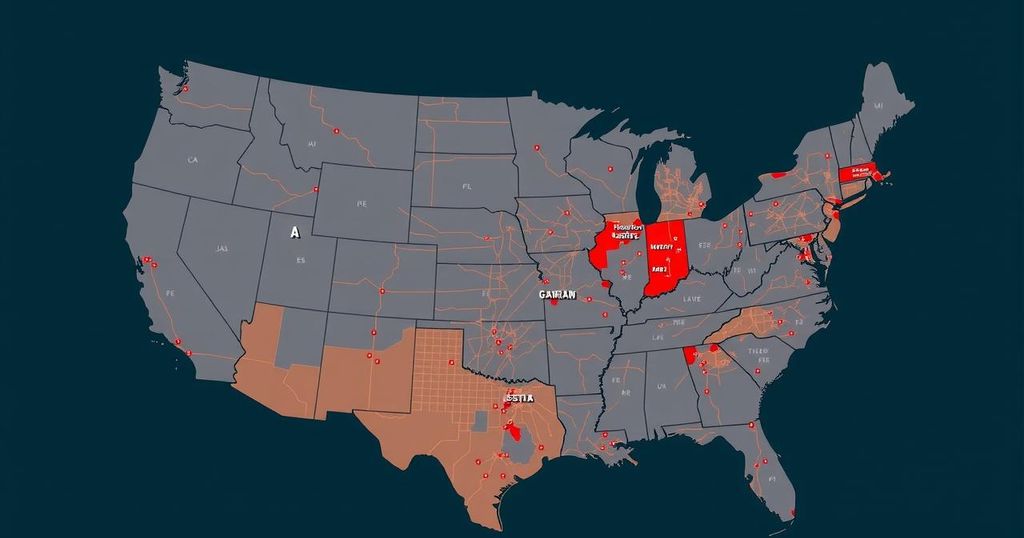The Gaza conflict prominently shapes the U.S. presidential election, causing Arab American voters, traditionally Democratic, to lean towards Trump due to discontent with the Biden administration’s stance. This shift poses electoral risks for Democrats as the election draws near and highlights the intersection between domestic politics and international crises.
The impending United States presidential election has instigated considerable uncertainty as voters grapple with the ongoing humanitarian crisis in Gaza. As the election date approaches, the race remains exceedingly tight, with distinctive shifts in voter sentiment observed, particularly among Arab American constituents. Traditionally aligned with the Democratic Party, a significant faction of these voters is now exhibiting a preference for the Republican candidate, Donald Trump. This shift poses a significant challenge for the Democratic Party, which is already experiencing concern over its electoral viability. The Biden administration’s unequivocal support for the military actions in Gaza has compounded these tensions, driving a wedge between the Democratic base and its leaders. An array of opinion pieces and political analyses delve into the ramifications of this voter discontent, highlighting the crucial influence of the Gaza conflict in shaping electoral outcomes. Moreover, the broader implications of the electoral results extend beyond domestic politics, with potential impacts on U.S. foreign policy across regions beset by conflict, such as Gaza, Ukraine, and Sudan. As the electorate seeks to make sense of these complex interrelations, it remains imperative to examine how personal narratives of suffering and loss resonate with voters, potentially altering longstanding political affiliations. Additionally, media coverage has revealed a hesitance among major publications to endorse any candidates, reflecting a significant caution as the political landscape shifts. Ultimately, the severity of the Gaza situation may very well redefine political alliances and voter turnout in this pivotal election.
The article addresses the significant influence of the Gaza conflict on the upcoming U.S. presidential election, particularly how it is affecting voter perceptions among Arab Americans. Historically, this demographic has largely supported the Democratic Party; however, the Biden administration’s unwavering support for Israel amidst the ongoing violence has led to a noticeable shift toward Donald Trump among these voters. This situation underscores the interconnectedness of domestic electoral politics and international humanitarian issues, positioning Gaza as a critical factor in shaping voter behavior. The tension is palpable, as the traditional party loyalties of Arab Americans wane in light of current events, prompting both parties to reevaluate their strategies ahead of an uncertain election outcome.
In summary, the Gaza crisis has dramatically influenced the electoral landscape of the United States, particularly affecting Arab American voters who now exhibit an increasing inclination towards Donald Trump. This shift poses significant challenges for the Democratic Party as it faces potential electoral repercussions stemming from its foreign policy decisions. As the election nears, the focus will remain on how these changing dynamics will play out at the polls and potentially reshape future U.S. foreign relations.
Original Source: www.aljazeera.com






